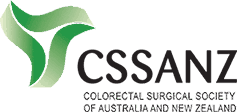You have been scheduled to have surgery. To ensure your body is as optimised as possible to tackle the stresses put upon it by an operation, you must carefully read the information below and follow the instructions. There has been significant research into the preparation of patients before an operation to help minimise the physiological stress and complications on the body that occur during and after surgery. The following information will help prepare your body to be in the best shape it can be before your operation.
Activity and diet
It is important to remain as active as possible before your surgery. This should include a 20-30 minute walk every day or two if possible. In general, the more active your body is before the operation, the quicker your recovery will be afterwards. Physical activity helps your circulation and also keeps your heart and lungs in good condition. If you are having major surgery, try and do gentle weights to increase your muscle mass in the weeks leading up to your surgery, as your body will use this as fuel in the recovery process after your operation.
Maintain a healthy diet beforehand. You may be required to modify your diet in the day or two prior to your operation, especially if you are to have a bowel preparation to clean the bowel. In the week or two before your operation, however, eat as healthy as you can and keep your fluid intake up.
Medications
If you are staying in hospital after your operation, please bring a list of all your current medications with you. Certain medications need to be stopped or adjusted prior to your operation. These include:
- Blood thinning medication (e.g. Aspirin, warfarin, Pradaxa, Eliquis, Clopidogrel, etc).
- Blood pressure medication.
- Diabetic medication.
If you are taking any of the above medication, you will be advised what to do before your surgery / procedure either by Dr Jamnagerwalla, the anaesthetist, or the Preadmission clinic at the hospital you will be having your surgery. If you are unsure about whether to stop or adjust your medications before your operation, please contact Dr Jamnagerwalla’s rooms on (02) 8578 2805.
What to bring
Bring comfortable clothes, slippers, pyjamas and any toiletries with you. We encourage patients to dress in their normal clothes after their operation, so they feel more comfortable.
Ensure you have contact details for your Next of Kin or Person to Notify, as they may have to be contacted at some point during your admission.
Generally, scans and ultrasounds do not need to be brought with you, unless requested by Dr Jamnagerwalla.
Bring all your current medications with you, or an up-to-date list.
Admission to hospital
The hospital will contact you in the 24 hours prior to your operation/procedure and inform you of your admission time. Most patients are admitted on the day of their operation. Fasting times for both solids and liquids will be advised by the hospital when they call you. It is not advisable to drive to hospital on the day of your operation/procedure as you will not be able to drive home. You will be required to have somebody to take you home upon your discharge.
The day of your operation
When you arrive into hospital before your operation, a nurse will complete your admission paperwork. You will also be visited by the anaesthetist who will discuss the anaesthetic with you and what type pain relief you will receive after your operation to control any pain. Elasticated stockings will be placed on your legs to help prevent clots during your hospital stay. If you are to have an enema, this will be administered to you when you have settled into your hospital bed.
If you have any questions relating to your admission to hospital, please contact Dr Jamnagerwalla’s rooms on (02) 8578 2805.





